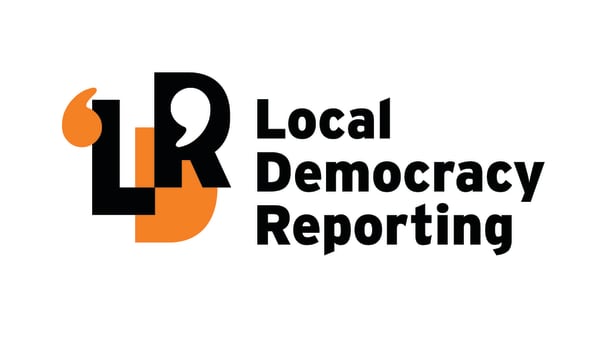The Government’s plan to roll out nationwide forestry standards has raised questions — and criticisms — from environmentalists and farmers in Tairāwhiti.

A proposed national standard would push back on councils’ ability to make tougher regulations for forestry companies.
Forestry representatives say the current rules “endanger” their businesses so have pushed for change.
While a Federated Farmers spokesman says the federation broadly supports the change, there is concern a one-size-fits-all model might be unhelpful for councils.
In the aftermath of Cyclone Gabrielle, and large amounts of forestry slash and woody debris clogging waterways, the Labour Government introduced new regulations to give councils greater control over regulating the forestry sector.
Forestry Minister Todd McClay says the Government wants to remove this “unworkable regulatory burden” to restore confidence and certainty across the sector by providing a “comprehensive fit-for-purpose National Environment Standard for Commercial Forestry”.
Currently, foresters could be required to get consent for new plantings on low- or no-risk areas, the same as for high-risk land, he said.
“It’s important that forestry rules are nationally consistent and always based on clearly demonstrable evidence,” he said.
McClay said he met with Gisborne Mayor Rehette Stoltz and the council, and they discussed work being undertaken to protect rivers and catchments and how to ensure forestry can responsibly contribute to the economy.
This discussion included talking about the council work with Overlay 3b, he said. This is a council plan to landmark the region’s worst-eroding areas and if they fall on pastoral farmers’ and forestry owners’ land, then to mandate a transition of this land into permanent vegetation cover.
“In the case of Tairāwhiti, where there is a large percentage of high-risk land, these changes will support council to focus on better outcomes for these areas,” he said.
A Gisborne District Council spokeswoman said the council would not be commenting on the proposals until there had been a discussion with elected members.
Eastland Wood Council chairman Julian Kohn said they had been working with local and central Government to change the conditions to allow the industry to keep operating, while also regulating the sector to protect the environment.
“Some of the current regulations are literally stopping the industry from being able to harvest and so endangering their ability to function as a business.”
Kohn said 32% of Gisborne’s tradable economic activity was generated by the forestry industry.
“And remember, the port is a forestry business — the community cannot afford to lose even a portion of the income.
“The current feeling in the investment arms of forestry and processing shows a definite no-go for investment in Tairāwhiti because the forest owners are not confident they can supply processors on a regular and ongoing basis,” said Kohn.
Federated Farmers meat and wool chairman and forestry spokesman Toby Williams said the federation broadly supported the changes as the previous rules “caused so much uncertainty”, but feared the one-size-fits-all model might be unhelpful for councils.
Forestry was also an important income for farming, as many farms used commercial forestry to diversify their income and land, he said.
“We need changes to practices, but the way that they’ve gone, we’ve gone too far in the wrong direction.”
The East Coast region suffered severe consequences when forestry practices were not regulated, he said.
“We need to be looking to ensure that we’re dealing with the problem areas first. So on the East Coast in Gisborne ... potentially our rules will stay strict and stay quite stringent.
“However, the way it’s currently written, if say you’re in Kawerau or somewhere like that, you’re going to have the same rules applied to you when you don’t face the same risks.”
Having rules set by councils that match the risks was a more pragmatic approach, he said.
East Coast National MP Dana Kirkpatrick said the Government was committed to supporting the primary sector, which included both farming and forestry, while also meeting its global emissions obligations.
“So in Tairāwhiti forestry represents about 20% of our land and a big part of our economy.”
The changes would give councils the tools to enhance and help forestry provide “smarter evidence-based environmental outcomes”, she said.
Kirkpatrick said the changes should be in place by mid-2025, and the council’s current plans would be taken into consideration, as well as the work being done by the Tairāwhiti Forest Action Group.
Environmental group Mana Taiao Tai Rāwhiti (MTT) spokesman Manu Caddie said it was concerned that the burden of evidence would fall on communities, such as volunteer groups, local government and ratepayers, to justify the need for environmental protections.
“Instead of on the industry — that makes billions of dollars every year and employs hundreds of well-paid experts — to prove why those protections should or should not apply,” he said.
“It is difficult to understand how ‘better social and environmental outcomes’ will be achieved by removing and modifying specific provisions designed to protect the environment.”











9 comments
Exactly which "regulations are literally stopping the industry from being able to harvest" and “caused so much uncertainty”? The regulations that say you can't let logs leave the harvest site except on a truck? I guess it would cause confusion if you'd been doing it for years and then were told to clean up your act.
“However, the way it’s currently written, if say you’re in Kawerau or somewhere like that, you’re going to have the same rules applied to you when you don’t face the same risks” - that's also completely incorrect. That was how the original NES-PF was previously; now it enables regulators to have different rules based on the risks posed by highly erosion-prone geology and slopes.
The Gisborne Herald needs to fact-check the misinformation coming from both politicians and industry before publishing untruths and half-truths. The BS in these statements is thicker than the sediment and slash still choking the region's waterways and coastline.
JOIN THE CONVERSATION
Read and post comments with a
Newsroom Pro subscription.
Subscribe now to start a free
28-day trial.